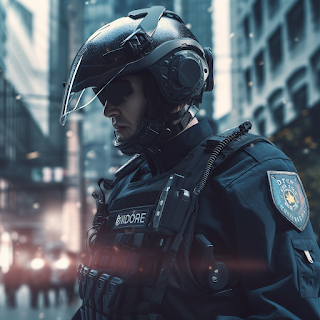As crime rates continue to rise in many parts of the world, law enforcement agencies are always looking for new and innovative ways to fight crime. One of the most promising tools in this effort is artificial intelligence, and ChatGPT is at the forefront of this technology. In this article, we'll explore the ways in which ChatGPT can help fight crime, from predicting criminal activity to analyzing crime data.
Predictive Policing
One of the most exciting developments in law enforcement in recent years is the concept of predictive policing. This involves using data analysis and machine learning algorithms to predict where and when crimes are likely to occur, allowing law enforcement agencies to take proactive measures to prevent them. ChatGPT's AI technology is well-suited to this task, as it can analyze vast amounts of data in real time, identifying patterns and making predictions with a high degree of accuracy.
Crime Data Analysis
Another key area where ChatGPT's AI can help fight crime is in the analysis of crime data. By analyzing crime reports, witness statements, and other relevant data, ChatGPT can help law enforcement agencies identify trends and patterns in criminal activity, allowing them to allocate resources more effectively and efficiently. For example, if ChatGPT's analysis reveals that a particular type of crime is on the rise in a particular area, law enforcement agencies can increase patrols in that area and take other proactive measures to prevent further crimes.
Identifying Suspects
ChatGPT's AI can also help law enforcement agencies identify suspects in criminal investigations. By analyzing data from various sources, including CCTV footage, social media activity, and other digital records, ChatGPT can help law enforcement agencies build a profile of a suspect, narrowing down the list of potential suspects and ultimately leading to an arrest.
Conclusion
There is no doubt that AI technology has the potential to revolutionize law enforcement and help fight crime in ways that were previously impossible. ChatGPT's advanced AI technology is well-suited to this task, and is already being used by law enforcement agencies around the world to great effect. As this technology continues to evolve, we can expect to see even more innovative uses for it in the fight against crime.

Comments
Post a Comment